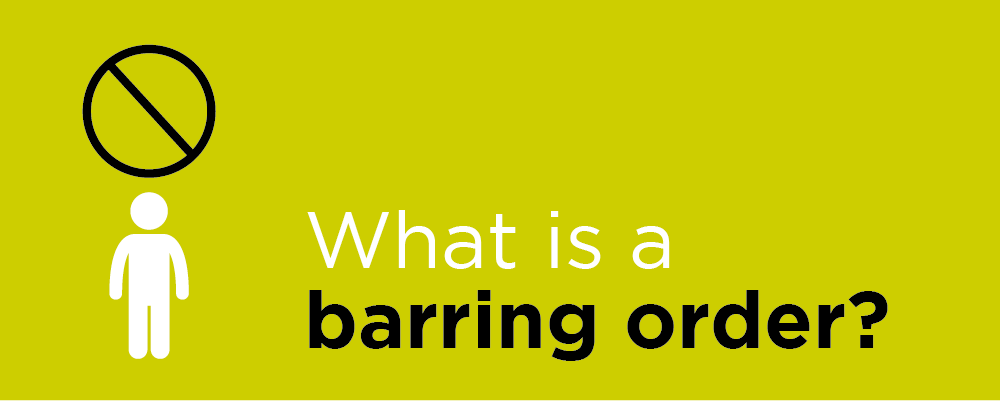- Basildon 01268244144
- Chelmsford 01245453800
- Colchester 01206217300
- London 020 4586 1280

A Section 91(14) Order or otherwise referred to as a “barring order” allows the court, in children's applications, to bar or restrict a further application being made without permission of the court.
How will a barring order help me and my family?
It restricts a parent or individual that holds parental responsibility for a child from making further applications unless the court specifically grants permission to do so. Ordinarily, a parent or individual that holds parental responsibility is not restricted from making any applications in relation to a child at any stage.
The salient piece of legislation, namely the Children Act 1989, does not specify in what circumstances the court can make a barring order. It was not until some ten years later in the case of Re P 1999 that proper guidance was provided by the court. Re P 1999 remains, until this day, the leading case in any Section 91(14) application.
The court’s approach in exercising its power of making a barring order is that such power be used sparingly and the making of such an Order must be weighed in the balance of all relevant circumstances.
Whilst the court has the power to make any order it considers necessary as part and parcel of a case, it remains good practice that a formal application is made and that the court and the party against whom such order is sought against is notified at the very earliest point. It may not be apparent at the beginning of a court application that a party or indeed the court will contemplate the making of a barring order but it may become apparent during the course of the case that careful consideration needs to be given whether such an order is deemed appropriate.
With technological advances, not only from 1989 but also 1999, this has perhaps widened not only the opportunity but the platform in which instances of domestic abuse, harassment, coercive and controlling behaviour can be perpetrated. As a result, the Domestic Abuse Act 2021 came into force.
How will the updates to the barring order better protect my family?
By virtue of the introduction of the Domestic Abuse Act 2021, a new clause of Section 91(14)A was added to the existing Children Act 1989 which provides that where proceedings are causing harm to a child or indeed their carer, the court may make a barring order.
Where the definition of "harm" has the added qualification of "serious" and/or "significant" in children law matters, following the introduction of the Domestic Abuse Act 2021, this is now not necessary. A recent case of A Local Authority v F & Others 2022, confirms this.
It was also said, contrary to the approach that such barring orders are exceptional, that they should be made sparingly and as a weapon of last resort, the case of Re A 2021 highlighted that the court was not using its powers to make barring orders enough, particularly against the pace of modern technological and digital advances in communication.
How to make a barring order
The making of a Section 91(14) Order must have the child's welfare as paramount and if made such an order should be proportionate against the type of application that the court restricts and the period of time.
Whether the court makes a barring order for a short period of time allowing the parties, and child subject to the proceedings, some breathing space or whether it makes it for a longer period the upshot remains that by making such a barring order, it is still an interference of an individual's right which is being restricted by the State.
A barring order is not an absolute bar from making any future application, it simply means that there is a hurdle, i.e. the seeking of permission from the court, to overcome before being able to proceed to making a substantive application if permission is granted. When presented with an application for permission, the court must consider the history of a case, the risk of potential harm to a child and whether there has been any change in circumstances since the last court Order (or application) that would justify granting permission.
A word of warning, a Section 91(14) Order cannot be circumvented. Where a party is barred, this does not mean that they can instruct someone else to make an application trying to seek something for the barred party’s benefit; for example, where a parent may be barred they cannot try to use the mechanism of say an application made by a grandparent to circumvent an order made against them. In circumstances where applications appear less than genuine, the court will refuse permission.
Talk to our Child Law specialists
Should you wish to discuss issues concerning child arrangements, please do not hesitate to contact me for a free 15-minute consultation. You can call me on 01268 824938 or via email at muntech.kaur@birkettlong.co.uk.



Comments